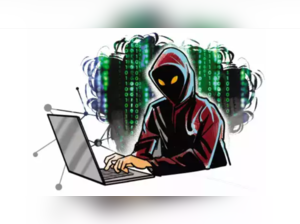 Agencies
AgenciesInitially designed to ensure secure and anonymous exchanges, particularly for governmental and military purposes, the darknet has regrettably become synonymous with criminal enterprises. Illegal transactions, including the sale of weapons and narcotics, thrive within its shadowy confines.
As per reports, the National Testing Agency that conducts important exams like NEET, JEE and CUET, faces a fresh challenge from the 'darknet', posing concerns about the secure conduct of exams.
What Lies Beneath: Deep Web and Darknet
However, not all internet content is as accessible. Beyond the ‘surface’ web lies the ‘deep’ web, where websites are not indexed and require specific access permissions. This includes databases holding sensitive information such as bank records and confidential health data, along with intranet systems used by governments and businesses.
The ‘darknet’, residing even deeper within the ‘deep’ web, hosts sites that deliberately evade public visibility and regulatory oversight. According to Google, while the deep web encompasses about 90% of the internet, the dark web represents less than 0.01% of it.
The Mechanics of Anonymity: Tor and .onion Domains
What distinguishes the darknet from the deep web is its anonymity-centric infrastructure. Accessing darknet sites necessitates specialized software like Tor (The Onion Router), originally developed by the US military for secure communications. Tor anonymizes users and websites by routing traffic through multiple layers of encryption, concealing identities and locations.Tor also supports websites using .onion domains, which further bolster anonymity by making it exceedingly difficult to trace their origin or operation country. This setup, however, requires specific darknet browsers and excludes conventional search engines like Google or Bing.
Users and Applications: From Privacy Advocates to Criminal Activities
The allure of the darknet lies in its anonymity, attracting a spectrum of users. This includes whistleblowers navigating restrictive environments, activists evading surveillance, and unfortunately, criminals exploiting the lack of oversight to engage in illicit activities such as the sale of leaked exam papers or illegal drugs.Major entities like Facebook have embraced the .onion domain to facilitate access in regions with internet restrictions, illustrating varied legitimate uses amid controversial ones.
Is it Illegal To Use Darknet
While using darknet browsers like Tor isn’t illegal in many countries, the intent behind their use can raise legal concerns. Accessing restricted content, even inadvertently, may lead to legal repercussions. Furthermore, darknet sites themselves may host illegal material, putting visitors at risk of legal action.Security experts caution that despite its layers of encryption, darknet activity may not be entirely untraceable. ISPs can still detect connections to Tor, potentially drawing unwanted attention from authorities.
(The article was originally published in TOI)
(Catch all the Business News, Breaking News, Budget 2024 Events and Latest News Updates on The Economic Times.)
Subscribe to The Economic Times Prime and read the ET ePaper online.
(Catch all the Business News, Breaking News, Budget 2024 Events and Latest News Updates on The Economic Times.)
Subscribe to The Economic Times Prime and read the ET ePaper online.











 Get Unlimited Access to The Economic Times
Get Unlimited Access to The Economic Times
